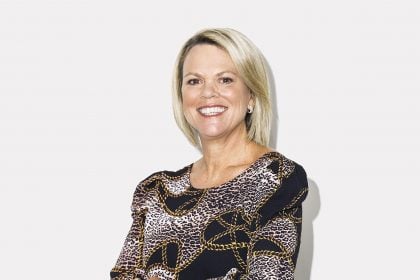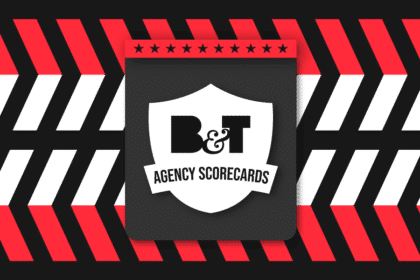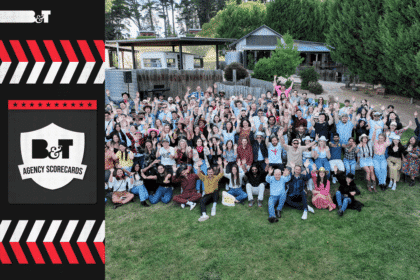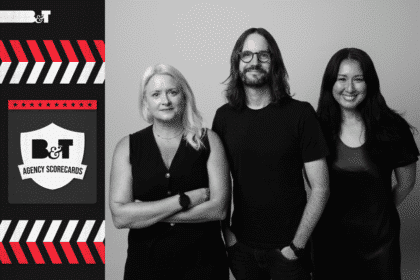On 4 February 2004, a dorky-looking Mark Zuckerberg launched “TheFacebook” to his Harvard classmates, in the 20 years that followed, the website — subsequently rebranded to Facebook — went on to change the world.
It also went on to change the advertising industry, with marketers given unprecedented psychographic tools to target users and powerful, quantifiable bottom-of-funnel tools and metrics to quantify ROAS and boost sales.
However, Zuckerberg has wound up in front of the US Supreme Court and Senate inquiries multiple times — as recently as last week. But, in 2018, Zuckerberg delivered one of the most famous lines in the history of the internet. Grilled by Republican senator Orrin Hatch of Utah about how Facebook could be free without charging users, Zuck replied “Senator, we run ads,” with a knowing smile.
But while running ads, Facebook has fundamentally changed the advertising industry. Someone who knows that more than anyone is Deepak Tahiliani, GroupM’s head of digital investment.
“I’ve been in the business for 16 or 17 years now and that’s when Facebook and Meta really started their journey,” he told B&T.
“It makes me feel old now! It literally started off like any other media channel just offering display banners and video banners on the website. It was not a sophisticated tool back then. Over the last 20 years, it’s changed and for the better at least for clients and marketers”.

Tahiliani said that while Facebook was nowhere near as sophisticated as it is now, it certainly caught his attention as a platform.
“The interest from users and engagement from marketers was very high, it was like a shiny new toy on the market,” he added.
What was new, however, was how Facebook offered advertisers the chance to buy audiences.
“If you look at it over the 20-year timeframe from what it began as to where it is now, Facebook paved the way for much of digital advertising,” said Sebastian Diaz, a senior digital solutions lead at Sydney-based indie digital agency Bench.
“From the early to late 2010s, it was providing the groundwork for advertising platforms to start building out walled gardens with data profiles based on user interests and activity”.

That business model did get Facebook into trouble on more than one occasion, however. While its longstanding mission statement claimed that Facebook was created to “bring people closer together” and connect the world at large, misuse of Facebook’s advertising datasets was instrumental in the election of Donald Trump in 2016, with data used to build psychographic user profiles for micro-targeting of users. It is also thought to have been used in the 2016 Brexit referendum by campaign group Leave.EU, though to a lesser extent.
However, it seems unlikely that Zuckerberg and the rest of Facebook’s early employees would have ever envisioned that their tool for finding Harvard classmates would ever scale to these heights.
“I think it followed other things that were happening within the industry,” added Diaz.
“Programmatic and DSPs were starting to do different things, so he probably looked at what he built and realised there was more he could be doing from a data point. You could see it grow, every year they would release new product updates with different audience targeting measures and upload tools that would allow you to start getting super granular with the data. And this was way before any kind of data privacy laws around digital advertising. You could do what you wanted, it was a bit of a Wild West”.
Euan MacDonald, digital lead at Melbourne independent media agency Half Dome, has experienced every facet of advertising on Facebook, working with businesses of all sizes to small- and large-scale political campaigns.
“Elections have been won or lost depending on how much was spent on Meta [Facebook’s parent company]. I’ve worked on independent campaigns that hinged on getting the most frequency and reach on Facebook because it was the easiest way they could mass-reach an audience, other than standing outside a train station and handing out leaflets,” he explained.
“Six or seven years ago, when I was working on those campaigns, there were no major rules for advertising on Facebook other than the existing political advertising rules — that you could go up to a certain date and then you’d have to stop” MacDonald continued.

“Nowadays, Facebook has become a lot more regulated with having to declare who you are and how you work for a party, so there’s a lot more red tape. Especially back in the day, it was a very easy way to target people down to a postcode level, candidates go in and say ‘We’re not polling as well in this suburb’ and spend $10,000, $20,000 or $30,000 — it’s not a lot of money — to really increase our exposure to people on a platform where they spend two, three, or four hours a day”.
And therein lies one of the biggest contradictions within Facebook and its advertising tool. The platform, by any measure, reaches nearly every single person with any kind of online presence. In its most recent earnings, Meta declared that Facebook now has 2.11 billion daily active users and 3.07 billion monthly active users — up six and three per cent year-on-year, respectively. And yet its tools were used to target individual people, rather than craft campaigns with a reach that no brand in the past could have envisioned.
“Advertisers are looking at where they can get the most bang for their buck,” said Tahiliani, “but there are plenty of studies that show that if you are not focused on the right branding and are focused on ROI-building activities and down-funnel advertising, you won’t get the results you want.”.
The truth is, whatever a marketer’s goals nowadays, not including some form of Facebook advertising in their channel mix is not only inefficient but ineffective. Though social is changing, Diaz said that the entire industry was becoming “harder to lean on as a performance channel” because of data restrictions and changing user behaviour — most notably the emergence of TikTok and its use as a content-consumption channel, rather than a platform to connect with family and friends.
“It has to be more seamless with the way you’re influencing people’s purchasing decisions, with more organic-style content created with things like [Instagram] Reels. You have to work more with influencers to make sure you’re building out that word-of-mouth style advertising” he added.
Regardless, the trio all say that their professional and personal lives would be unimaginable without Facebook. And, despite Zuck’s potentially misguided infatuation with the metaverse, that doesn’t look likely to change any time soon. Here’s to another 20 years?
Lead photo credit: The Harvard Crimson








